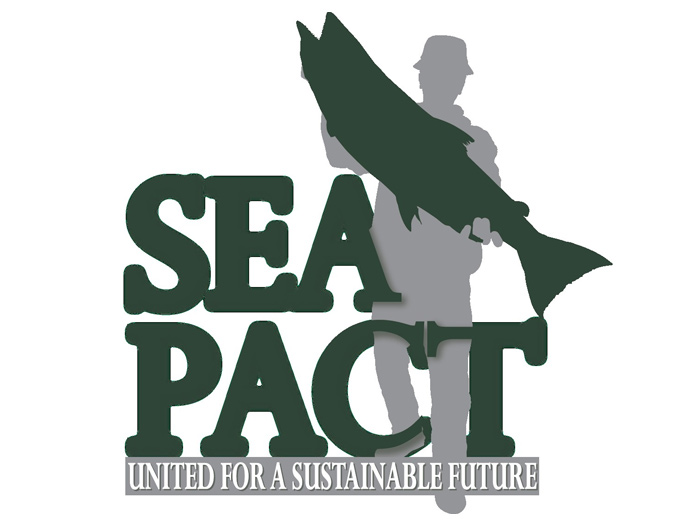Sea Pact Announces Grant Funding for Six New Projects
March 20, 2019 | 4 min to read

BOSTON, MA – Sea Pact, an innovative association of ten leading North American seafood companies working together to drive industry sustainability progress, today announces funding support to six new projects advancing seafood sustainability globally.
The recipients of the Sea Pact funding grants are:
Conservation International (CI)’s project to integrate social responsibility into the Fishery Improvement Project (FIP) model, aims to broaden and strengthen the impact of FIPs, as a strong vehicle to drive change and align private sector, non-profit, and governmental actions to improve social performance. They will pilot a new, collaboratively developed Rapid Assessment Protocol for Socially Responsible Seafood, and implement an assurance program in a pilot Fishery Improvement Project (focused on Pacific longline-caught tuna), supporting partner co-learning, capacity development for implementation, and data systems for supply chain management.
Ocean Outcomes China Red Swimming Crab Fishery Ghost Gear Management Pilot project aims to integrate ghost gear solutions with growing fishery improvement efforts and 1) demonstrate the practical application of ghost gear assessment criteria being developed from the Global Ghost Gear Initiative’s (GGGI) Best Practice’s Framework for the Management of Fishing Gear, and show they can be used as an integral part of fishery pre-assessments to support FIP design or fishery certification processes; and 2) implement fleet-wide measures for the Fujian Zhangzhou Red Swimming Crab Fishery to minimize loss of crab gear and mitigate impacts of ghost gear through a management plan that guides and evaluates performance.
The Anderson Cabot Center for Ocean Life at the New England Aquarium project will leverage their expertise on right whales and bycatch reduction techniques to create tools that will help Marine Stewardship Council (MSC) certified fisheries meet any new conditions around interactions with North Atlantic right whales to enable them to maintain certification. Combined information from scientific gear trials, population status, and other research with MSC criteria performance indicators will be made publicly available on platforms such as FisheryProgress.org to the benefit of seafood buyers and other stakeholders.
Catalina Sea Ranch’s project focus is to develop public protocols for cryopreservation of mussel larvae in large-scale commercial aquaculture. The pilot project is an aquaculture enhancement project further developing and applying current research on mussel larvae cryopreservation. The resulting data will be used to develop public protocols for a cryopreservation program that can support a year-round “seed-on-demand” supply system which will transform hatchery production for commercial bivalve shellfish aquaculture. Methods can then be adapted for other species of shellfish.
The Mainland High School Aquaculture and Marine Science program (Daytona Beach, Florida) is focused on inspiring students toward aquaculture careers. Their project will construct a hard clam hatchery with locally sourced materials. Students will design and implement plans to culture the hard clam from seed to nursery. They will subsequently follow the complete cycle from grow-out to market. A key outcome will be to increase awareness of the growing Florida bivalve aquaculture market to young students in an economically challenged region.
The City University Hong Kong project’s focus is on the development of environmental DNA (eDNA) tools for early detection of pathogens relevant to aquaculture in Southeast Asia. eDNA is a front-line methodology that can identify and quantify the genetic material of different pathogens present in the water column before a disease occurs. Asia produces 89% of the world’s farmed food fish, and for many aquaculture industries up to 40% of production is lost to diseases. Early pathogen detection is therefore crucial for the successful health management and control of diseases in aquaculture. This project will be able to dramatically improve the response capability of aquaculture farmers to disease risk in SE Asia.
“We congratulate the selected organizations and really applaud the proponents of this diverse range of innovative projects. Over the next year we look forward to interacting with the projects and seeing the demonstration of results and positive change for the sustainability of our industry and for the oceans”, said Stacy Schultz, director of marketing and sustainability coordinator for Fortune Fish & Gourmet, and chairwoman of the Sea Pact Advisory Council.
Rob Johnson, managing director of Sea Pact, states that “we are pleased to announce these grant recipients in Boston at the conclusion of Seafood Expo North America (SENA), where Sea Pact has been engaged in North America’s largest seafood exposition and conference”.
About Sea Pact:
Sea Pact consists of ten like-minded, leading seafood distributors across North America: Albion Farms & Fisheries in Vancouver, Euclid Fish Company in Cleveland, Fortune Fish & Gourmet in Chicago, Ipswich Shellfish Group in Boston, J.J. McDonnell in Baltimore, North Atlantic Inc. in Portland, Maine, Santa Monica Seafood in Los Angeles, Seacore Seafood in Toronto, Seattle Fish Co. in Denver, and Stavis Seafood in Boston. These companies are united for a sustainable future and are using their collective strength to lead by example and drive improvement of environmental, economic, and social responsibility throughout the global seafood supply chain. Sea Pact receives sustainability council from non-profit organizations Ocean Outcomes, Sustainable Fisheries Partnership, and FishWise, and is a project under New Venture Fund’s 501(c)3 non-profit status. To learn more about Sea Pact visit their website at www.seapact.org and follow on twitter and facebook and linkedin.
